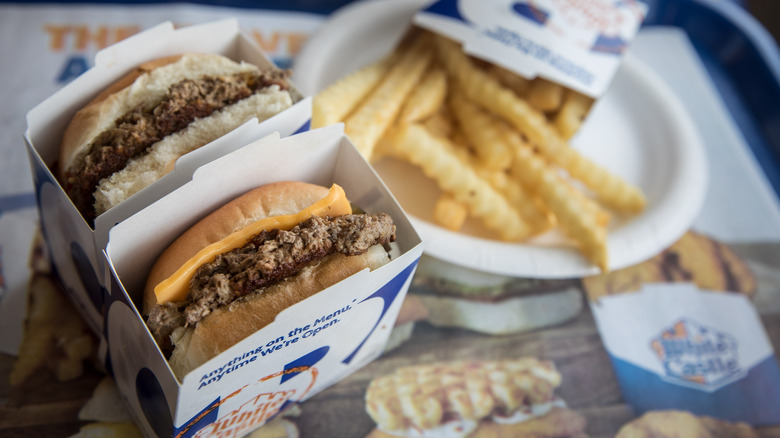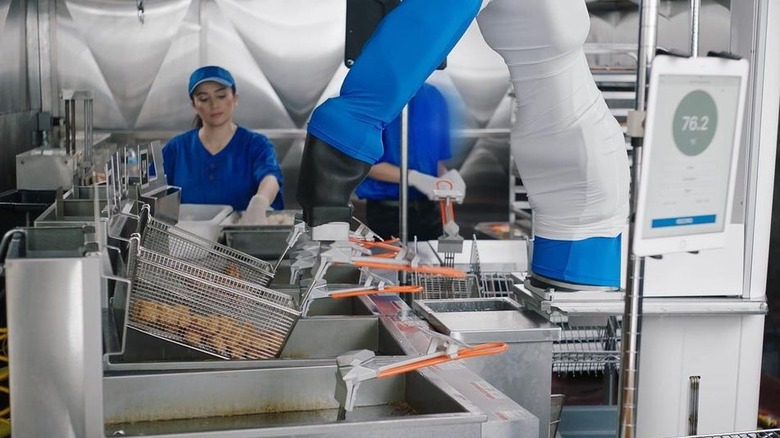This Futuristic Chef Could Be Coming To Your Local White Castle
An unexpectedly futuristic chef could soon be whipping up your next White Castle order. In a press release, the popular fast food chain announced it will be installing robot chefs in 100 restaurant locations across the U.S., marking a major expansion of its current use of robotic workers.
The burger chain first experimented with robotic cooks in 2020, when it installed a burger-flipping robot — named 'Flippy,' after its primary task — in a select number of Chicago-area restaurants (via CNN). At the time, the implementation of robotics in White Castle kitchens raised concerns about the loss of human jobs that could result from the technology.
Flippy's initial debut had a few bumps; the company had to temporarily pause the use of the robot, as it was grilling burgers faster than the human White Castle employees could assemble them (via CNET). However, in 2021, CNN reported the company doubled down on its futuristic fry cooks, installing a new and improved 'Flippy 2' robot in 10 of its restaurant kitchens.
After the apparent success of this initial test group, White Castle is moving forward with installing Flippy 2 robots in a large portion of its locations. According to the company Miso Robotics, which created the food service robot, Flippy 2 was designed to alleviate "the pain points that come with back-of-house roles at quick-service restaurants to create a working environment ... that maximizes the efficiency of the kitchen." According to Miso, the benefits of the burger-flipping robot are numerous.
The food service robots could reduce the spread of food borne illness
From a health standpoint, the company says that Flippy can help curb the spread of food-borne pathogens by using thermal imaging technology to detect when the meat is fully cooked (via CNN). It also helps limit human exposure to food, potentially reducing the spread of illness. From a customer service standpoint, Miso Robotics also believe Flippy will free up workers to "focus on creating memorable moments for customers."
Food service robots have been on the rise in recent years, becoming particularly useful in the face of social distancing and labor shortages. Robotics companies now produce robots for just about every restaurant task imaginable, from assembling pizzas to serving lattes (via FastCasual.com). China has notably utilized robotic chefs, bartenders, and servers at the 2022 Olympic games in Beijing to reduce human-to-human interactions in dining halls in an effort to keep COVID-19 at bay.
Now, robotics could provide a potential solution to the labor shortages that have plagued the fast food industry in recent years. "Having Flippy 2 be a new hire at 100 of our White Castle locations keeps us on a path to achieve big goals at White Castle," said White Castle COO Jeff Carper. "Our partnership with Miso continues to lead the way on what's next for back of house restaurant operations looking to empower team members with technology."
While this technology represents a big step forward for the fast-casual restaurant industry, the broader implication of robotics on the human work force of the future is as yet unknown.

